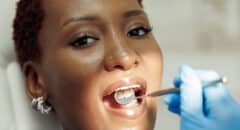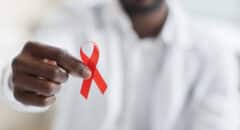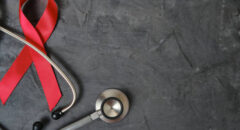
Early symptoms of HIV infection, often occurring 2-4 weeks after exposure, are often mistaken for the flu or other common illnesses. These symptoms include fever, rash, sore throat, swollen lymph nodes, fatigue, and muscle aches. While some individuals may experience a more severe acute HIV infection with these symptoms, others may have no noticeable symptoms at all, or they may be so mild that they are easily overlooked.
The 3 Stages of HIV
The stages of HIV are as follows:
Stage 1 (acute HIV):
A person may experience flu-like symptoms. At this point, high amountsTrusted Source of HIV are present in the blood, and it is easy for a person to spread it to others. This stage can last from a few weeks to a few months.
Stage 2 (chronic HIV):
People also call this the clinical latency stage. The virus is still active but reproduces at much lower rates in the body. A person may not display symptoms during this stage. However, they should receive treatment to prevent progression to stage 3.
Stage 3 (stage 3 HIV):
Doctors formally referred to this stage as AIDS, but people now call it stage 3 HIV. If a person does not receive HIV treatment, the virus eventually weakens the body’s immune system and progresses to stage 3 HIV. At this stage, a person is more vulnerable to opportunistic infections and other complications. Without treatment, people in this stage typically survive for about 3 years.
7 Early Signs of HIV
Acute HIV Infection (Primary HIV Infection):
This is the first stage of HIV infection, characterized by a rapid increase in the virus and a strong immune response, leading to flu-like symptoms in many, according to the NIH.
1. Fever:
A persistent or fluctuating high temperature is a common early sign, notes the New York State Department of Health.
2. Rash:
Appearing as a flat, reddened area on the skin covered with small, raised bumps. It often occurs within 2-6 weeks of exposure to the virus and may be accompanied by flu-like symptoms like fever and swollen lymph nodes. The rash can be itchy, painful, and may appear on the abdomen, face, arms, or legs. While not always a guaranteed symptom, it’s important to seek medical attention for any unexplained rash, especially if accompanied by other HIV symptoms.
3. Sore Throat:
A sore throat, similar to the flu or common cold, may be present.
4. Swollen Lymph Nodes:
These enlarged lymph nodes, also known as lymphadenopathy, can occur in various locations like the neck, underarms, and groin. HIV is a chronic, or ongoing, condition. This doesn’t mean swollen lymph nodes will occur all of the time. HIV symptoms tend to fluctuate depending upon the level of virus in the body and the various complications it causes.
Medications for HIV help slow the rate of immune system breakdown. It’s important to stick with all prescribed medications and treatments, even if symptoms are reduced.
5. Fatigue:
Extreme tiredness or exhaustion is a common complaint, often accompanied by difficulty concentrating. Fatigue in HIV infection is largely a result of stressful life events, and is closely tied to the anxiety and depression that accompany such events.
Fatigue is common among people with HIV. There are a range of medical and day-to-day factors which can cause fatigue and affect how you experience it.
Everyone feels tired from time to time, and this is usually because they are not getting enough sleep. Insomnia, difficulty sleeping, and disturbed sleep can have several different causes and tackling them can make a big difference to your mood and wellbeing.
However, HIV-related fatigue is a tiredness that is not cured by rest. It can have a profound effect on people’s lives and affect them physically, emotionally, socially, and cognitively.
6. Muscle Aches and Joint Pain:
Muscle aches and joint pain can occur at all stages of HIV disease and can affect many parts of the body. Usually, pain occurs more often and becomes more severe as HIV disease progresses, especially if it is not being treated. But each individual person is different. While some people may experience a lot of pain, others have little or none. The good news is that, as HIV treatments have improved, fewer people living with HIV are experiencing pain.
7. Gynaecological Symptoms in Women:
Women with HIV are more prone to gynaecological complications due to a weakened immune system. Certain infections and conditions are more frequent and severe in HIV-positive women.
Some common gynaecological issues include:
- Recurrent vaginal yeast infections
- Higher risk of pelvic inflammatory disease (PID)
- Increased chances of cervical cancer
- Abnormal Pap smears and cervical dysplasia (precancerous cervical changes)
These factors highlight the importance of routine gynaecological checkups and screenings for women with HIV.
Asymptomatic Period:
Some individuals may not experience any noticeable symptoms during the acute phase, or their symptoms may be so mild that they are mistaken for other illnesses, according to the Mayo Clinic.
Testing for Early/Acute HIV Infection
If you think you might have been exposed to HIV within the last 30 days, and/or you have symptoms of early/acute HIV, talk to your health care provider. Certain HIV tests
can detect HIV as early as 7-10 days after an exposure took place. By talking with your health care provider about your symptoms, and your recent risk for HIV, they can make sure you get the proper tests to detect early/acute HIV.
Waiting for Test Results
While waiting for your test results, it is very important for you to know that if you have early/acute HIV, you can pass the virus to your partners. Until you know your test results, you can minimize the risk of spreading HIV to others by:
• abstaining from sex
• using a condom every time you have sex
• not sharing needles or other drug paraphernalia, if you use drugs.
Your Mental Health If You Get Diagnosed with HIV
Receiving an HIV diagnosis can be a challenging experience with significant psychological implications. Initial reactions often include fear, anxiety, and even depression. However, with support, it’s possible to develop healthy coping mechanisms and manage mental health effectively.
If you have been diagnosed with HIV, the first step is to seek help, but to do it in the right way:
Open Communication:
Talking with healthcare providers about mental health concerns is essential for receiving appropriate support and treatment.
Support Groups:
Joining support groups can provide a sense of community and shared experience.
Professional Help:
Seeking professional help from therapists or counselors can provide guidance and strategies for managing mental health challenges.
Mental Health Support:
Access to mental health services, such as therapy, counseling, and support groups, can be crucial for managing the emotional impact of the diagnosis.
Treatment Adherence:
Engaging in mental health support and treatment can significantly improve treatment adherence for HIV medications.
Self-Care:
Healthy lifestyle habits, such as regular exercise, sleep, and a balanced diet, can also contribute to improved mental well-being.
Social Support:
Connecting with family, friends, or support groups can provide valuable emotional support and reduce feelings of isolation.






